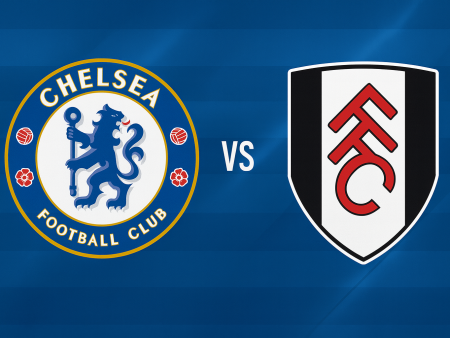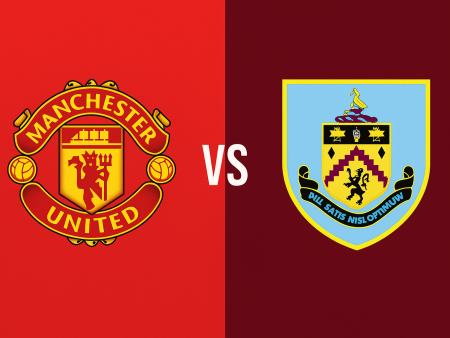Understanding the ‘Stopper’ Role in Modern Football
In football, team success relies on each player understanding their unique contribution within a system designed by the manager. Today’s game demands not only overall tactical cohesion but also clearly defined roles for every individual. Among defenders, the centre-back position has evolved into specialized roles, with "Stoppers" still playing a crucial part in many elite teams. This article explores what it means to be a ‘Stopper’, how these players are measured, and highlights standout examples from the modern era.
The Evolution of Defensive Roles: Stopper vs. Sweeper
Historically, centre-back pairings were described through the complementary roles of "Stopper" and "Sweeper." The Stopper’s job was to step out of the defensive line to confront opponents, win duels, and disrupt attacking moves early. In contrast, the Sweeper stayed deeper, tidying up loose balls and providing cover behind the defensive line.
While pure Stopper-Sweeper duos are now rare-especially as football tactics have grown more fluid-these archetypes remain valuable. Many top teams, particularly those using a back three, deploy at least one centre-back with pronounced Stopper traits: aggressive, physically dominant, and proactive in duels.
Key Characteristics and Responsibilities of the Stopper
Stoppers are defined by traits such as strength, aerial ability, and a fearlessness in stepping out to intercept or tackle. Their focus is on:
- Disrupting attacks higher up the pitch by aggressively challenging forwards.
- Engaging in frequent physical battles, often putting themselves in harm’s way for the team.
- Winning aerial duels and dominating the penalty area defensively.
While some teams favor Stopper types who can advance the ball (for example, Nico Schlotterbeck or Matthijs de Ligt), the primary focus remains defensive solidity and the ability to stifle opposition strikers before they threaten goal.
Modern Examples and Tactical Partnerships
Recent examples highlight how Stopper qualities support both individual and team performance. Under Antonio Conte at Chelsea, Gary Cahill’s robust defending played the Stopper role while David Luiz operated as a deeper cover. Currently, players like Antonio Rüdiger combine physical aggression with modern ball skills, blurring some boundaries but still epitomizing many Stopper traits.
Successful partnerships often involve nuanced balancing acts. Legendary duos such as Giorgio Chiellini and Leonardo Bonucci at Juventus take turns applying pressure (“stepping”) or dropping off (“sweeping”), adjusting according to the flow of the game.
Quantifying and Evaluating Stopper Performance
To assess a Stopper’s impact, it’s essential to analyze more than just traditional statistics. The most effective evaluation systems employ both quantitative metrics and qualitative observation to capture a holistic view of a player's performance. Here’s how Stopper defenders are commonly evaluated:
- Defensive IQ: Leadership, discipline, game intelligence, and positioning are paramount. This includes analyzing decision-making when to step out or hold position, understanding personal limitations, and adapting to partner strengths.
- Defensive Contribution: Key metrics include tackles, interceptions, aerial duels won, clearances, blocks, pressures, and recoveries. The raw volume and success rate of these actions provide insight into a Stopper’s activity level and effectiveness.
- Possession and Distribution: While less vital than defensive duties, passing accuracy, progressive passing, and composure under pressure are important in modern football.
- Attacking Threat: Stoppers often add value at set pieces or in attacking scenarios through their aerial ability and physicality. Contributions are measured by forward runs, passes into the final third, and involvement in shot creation.
- Abnormal Events: Goals, assists, errors leading to goals, and disciplinary incidents are tracked, as they can significantly affect a player’s impact during a match or over a season.
Standout Stopper Profiles: The Top 20 of 2022
Using selected defensive statistics (aerial duel success, pressing effectiveness, tackles and interceptions per match), the best Stoppers in world football in 2022 include:
| Rank | Player | Team | Aerial Win % | Press Success % | Tackles + Interceptions (per 90) |
|---|---|---|---|---|---|
| 1 | Antonio Rüdiger | Chelsea | 69.1 | 31.3 | 2.85 |
| 2 | Josko Gvardiol | RB Leipzig | 62.3 | 37.1 | 5.34 |
| 3 | Matthijs de Ligt | Juventus | 68.1 | 41.1 | 2.69 |
| 4 | Nico Schlotterbeck | SC Freiburg | 74.1 | 40.5 | 5.11 |
| 5 | Obite Evan Ndicka | Eintracht Frankfurt | 63.2 | 38.1 | 4.07 |
| 6 | Willi Orban | RB Leipzig | 62.6 | 40.4 | 2.82 |
| 7 | James Tarkowski | Burnley | 68.7 | 36.0 | 4.14 |
| 8 | Sven Botman | LOSC Lille | 73.3 | 39.4 | 2.96 |
| 9 | Ibrahima Konaté | Liverpool | 71.9 | 26.7 | 3.82 |
| 10 | Mario Hermoso | Atletico Madrid | 68.5 | 38.6 | 3.09 |
| 11 | Dan Burn | Brighton | 73.0 | 35.8 | 4.01 |
| 12 | Cristian Romero | Tottenham Hotspur | 62.5 | 35.6 | 6.44 |
| 13 | Konstantinos Mavropanos | VFB Stuttgart | 81.8 | 45.3 | 5.58 |
| 14 | Boubakar Kouyaté | FC Metz | 70.6 | 35.2 | 6.66 |
| 15 | Nayef Aguerd | Stade Rennais | 70.1 | 34.7 | 2.76 |
| 16 | Ben Mee | Burnley | 71.3 | 35.8 | 3.04 |
| 17 | Craig Dawson | West Ham United | 64.8 | 33.7 | 2.61 |
| 18 | Alexander Hack | Mainz 05 | 65.0 | 40.8 | 4.96 |
| 19 | José Fonte | LOSC Lille | 77.2 | 32.6 | 2.06 |
| 20 | Nathaniel Phillips | AFC Bournemouth | 68.5 | 35.8 | 2.30 |
Prototypical Stoppers: What Sets Them Apart?
Some Stoppers are especially well-known for classic defensive attributes: high numbers of blocks, aerial wins, and pressure actions. Examples of the most archetypal Stoppers include Nathaniel Phillips, James Tarkowski, Dan Burn, and Ben Mee-players who consistently prioritize physical duels and disruption over finesse play.
| Rank | Player | Team | Aerial Wins (p90) | Presses in Middle Third (p90) | Blocks (p90) |
|---|---|---|---|---|---|
| 1 | Nathaniel Phillips | AFC Bournemouth | 4.80 | 5.93 | 1.42 |
| 2 | James Tarkowski | Burnley | 4.96 | 2.12 | 2.67 |
| 3 | Dan Burn | Brighton | 4.74 | 4.16 | 2.26 |
| 4 | Craig Dawson | West Ham United | 3.37 | 2.09 | 2.16 |
| 5 | José Fonte | LOSC Lille | 2.95 | 1.97 | 1.39 |
| 6 | Ben Mee | Burnley | 4.51 | 2.06 | 1.96 |
| 7 | Alexander Hack | Mainz 05 | 3.96 | 4.09 | 1.65 |
| 8 | Nico Schlotterbeck | SC Freiburg | 4.45 | 5.58 | 2.33 |
| 9 | Willi Orban | RB Leipzig | 3.98 | 3.44 | 2.21 |
| 10 | Boubakar Kouyaté | FC Metz | 3.65 | 4.26 | 2.74 |
Conclusion: The Lasting Importance of the Stopper
Despite football’s evolution and the rising emphasis on ball-playing defenders, the ‘Stopper’ role remains fundamental. These defenders bring a physical edge and fearless mentality, safeguarding their team and setting the tone in defensive battles. While not always the most glamorous, Stoppers are indispensable for teams seeking defensive balance and security-making them as vital today as ever in the beautiful game.













